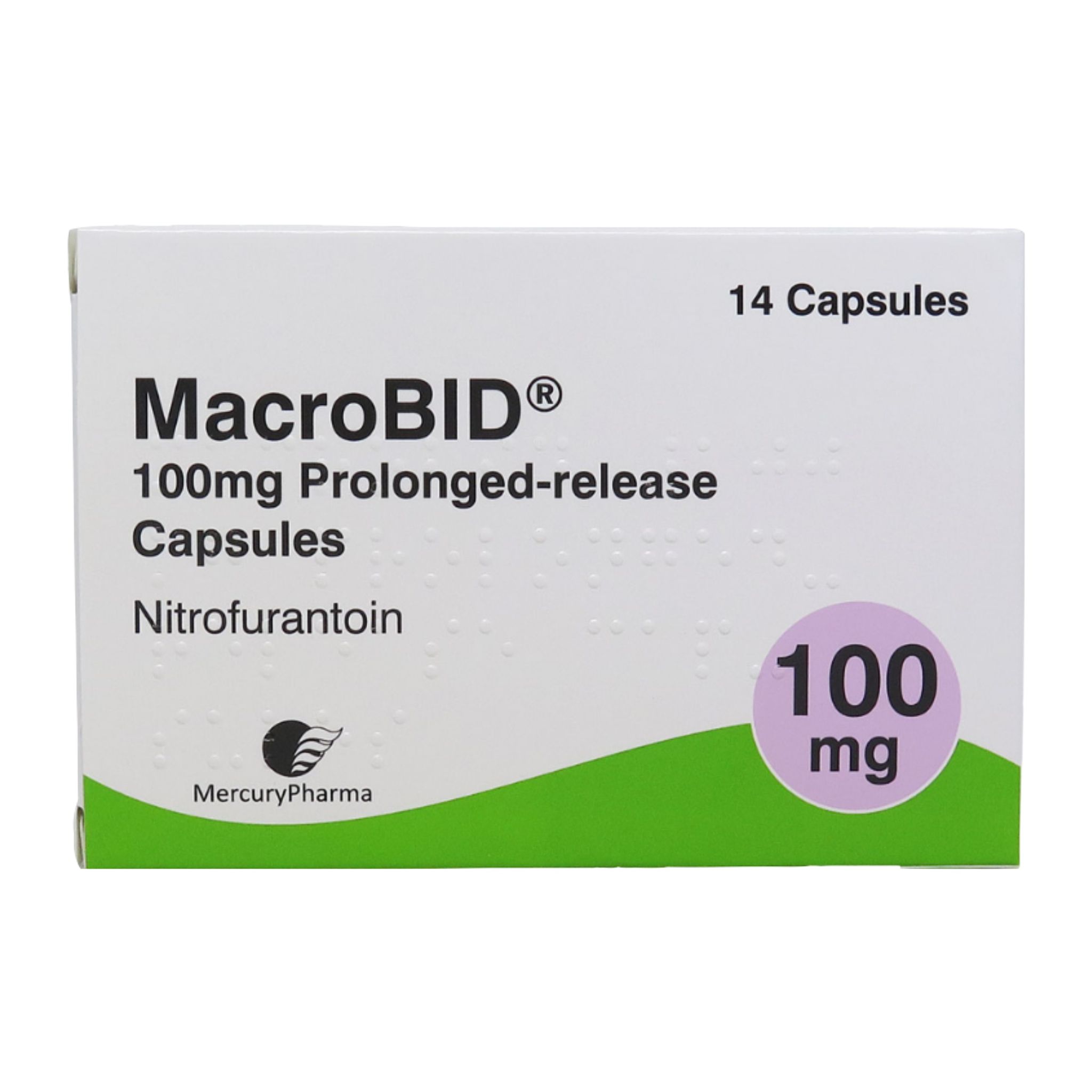Nitrofurantoin 100mg MR Capsules
Description
What is Nitrofurantoin?
Nitrofurantoin is an antibiotic commonly prescribed for the treatment and prevention of urinary tract infections (UTIs). It is particularly effective against bacteria found in the urinary system. UTIs affect women more than men due to the structure of their reproductive organs. When left untreated, the conditions can develop into serious complications.
How Does it Work?
Nitrofurantoin works by killing bacteria that cause infections in the urinary tract. It stops the bacteria from multiplying and spreading, allowing your body to recover.
Warnings
Patients with the following conditions are advised to avoid using Nitrofurantoin:
- An allergy to Nitrofurantoin.
- Kidney, liver, or lung disease or a condition affecting the nervous system.
- Porphyria disease.
- Anemia, vitamin B deficiency or having abnormal levels of salts in your blood.
- Lacks an enzyme called glucose-6-phosphate dehydrogenase.
Directions
- The usual dose is one capsule, twice a day, or as directed by your doctor.
- Always take the capsule with food or milk. This helps your body absorb the medicine properly and reduces the chance of an upset stomach.
- Keep taking the capsules for the full course, even if you feel better. Stopping early can cause the infection to come back
Ingredients
The active substance is 100mg nitrofurantoin in each capsule. The other ingredients are talc, corn starch, lactose, carbopol, povidone, sugar and magnesium stearate. The capsule shell contains gelatin, quinoline yellow (E104), titanium dioxide (E171) and FD&C Blue No.2 (E132). The printing ink contains shellac, propylene glycol (E1520), titanium dioxide (E171) black iron oxide (E172), ammonium hydroxide (E527) and simethicone.
Side Effects
Common side effects include:
- Feeling sick, stomach ache, loss of appetite, or diarrhoea.
- Dizziness or drowsiness.
- Changes of mood.
- Skin rashes.
- Hair loss.
FAQs
1. How long does it take to work?
Relief from UTI symptoms usually begins within 24 to 48 hours of starting the medication.
2. How often should I take Nitrofurantoin?
Usually one capsule twice a day. Please follow the instructions provided to you by your prescriber.
3. Can Nitrofurantoin be used during pregnancy?
It can be used during pregnancy but is generally avoided near term. Consult your healthcare provider for advice.
4. Can Nitrofurantoin prevent future UTIs?
Yes, it may be prescribed for long-term use in low doses to prevent recurrent UTIs.
5. What if I miss a dose?
Take the missed dose as soon as you remember, unless it's near the time for the next one. Do not double the dose.


